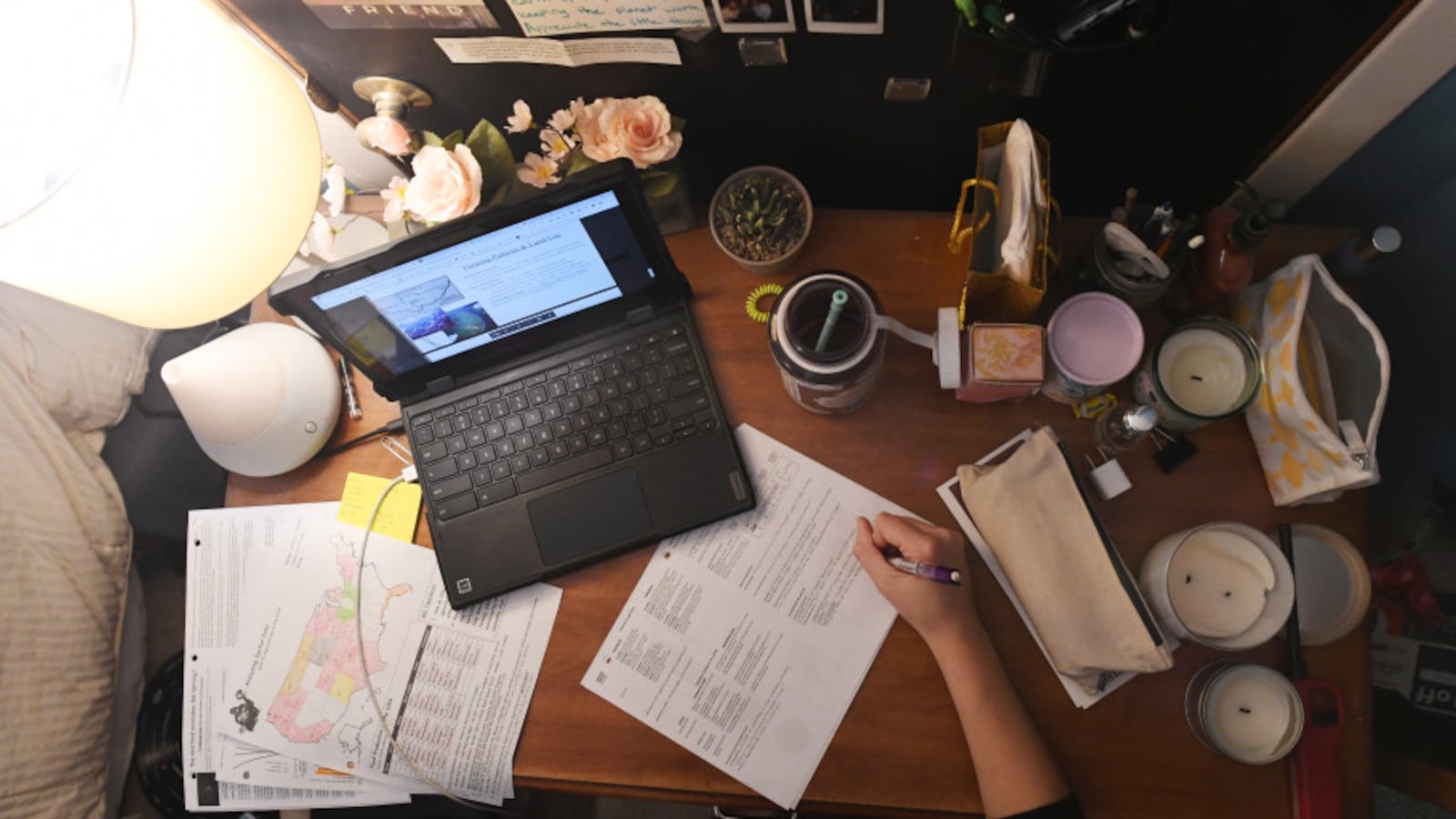With schools across Illinois now closed at least through April 30, longer than initially planned, many wonder just how they’re supposed to educate students from afar.
They’re turning to recommendations the state Board of Education released to guide the transition.
The nearly 60 pages of recommendations come from a 63-member remote learning advisory group made up of district leaders, educators, and students. The state board’s long-awaited guidance released Friday covers grading, attendance and specific instruction for different grades, English language learners, special education students, and more.
Here are five takeaways about the state’s new rules.
The state is giving districts leniency on attendance days.
In a typical year, the state school board requires school districts to operate schools for 185 days to receive full funding — a rule that became an issue during Chicago’s 11-day teacher strike.
With coronavirus forcing longer-term closures, the state school board has revised that rule. From the date that the governor’s closure mandate went into effect until now, students have missed 11 days from coronavirus closures, but districts won’t lose funding as a result.
From March 31 until schools reopen, remote learning days will count as student attendance days.
The state will count days from March 17-30, referred to as “Act of God” days, as student attendance days. Any days districts missed before March 17 because of coronavirus-related closures will be counted as emergency days and do not have to be made up.
The state has also said districts will have flexibility to extend the school year into summer. However, that’s an unlikely prospect for all but the wealthiest districts, said the president of the state’s largest teachers’ union, since districts tend to contract with teachers for just the school year and it would cost significantly more to extend those contracts.
Local school districts will have control over remote learning planning.
The state’s detailed recommendations are advisory, not compulsory. School districts and charter schools may create and run their own remote learning plans. The state will allow districts five planning days to develop their program, which need not be made up at the end of the school year.
The recommendations say that schools must provide digital and non-digital access to education content, because not all families have devices and internet at home. In a survey by the Illinois State Board of Education, about two-thirds of school leaders said that their district lacked the technology to do e-learning. The state plans to reach out to donors to help equip every school district in the state with the proper technology.
The state lays out recommended periods of time for student learning.
The recommended length of time varies by grade. From pre-K to fifth grade, for example, the state recommends a minimum of 20 to 60 minutes per day for instruction time. For sixth to 12th grade, the state recommends each class last a minimum of 15 to 20 minutes per day and school go from 90 to 120 minutes per day.
In Chicago, Mayor Lori Lightfoot said Monday that Chicago Public Schools teachers must make themselves available for four hours per day for students, a span of time that could include office hours.
The advisory group wants students to focus on learning, not grades.
The advisory group recommends grading be based upon the principle of “no educational harm to any child.” Instead of awarding letter grades, the state board suggests that school districts issue pass/incomplete marks for students.
“The emphasis for schoolwork assigned, reviewed, and completed during the remote learning period is on learning, not on compliance,” the recommendations state.
Educators will continue to be paid for work.
Gov. J.B. Pritzker, the state board, the Illinois Education Association, Illinois Federation of Teachers, Illinois Association of School Administrators, and the Illinois Principals Association updated a March 17 joint statement in response to the state board’s remote learning recommendations.
The statement clarified that during school closures, all educators and staff will receive their normal pay while continuing to educate students, provide meals, provide student and staff support, and ensure the performance of essential functions and operations of districts. In Chicago, front-line school workers and administrators who are serving meals are receiving additional pay.


